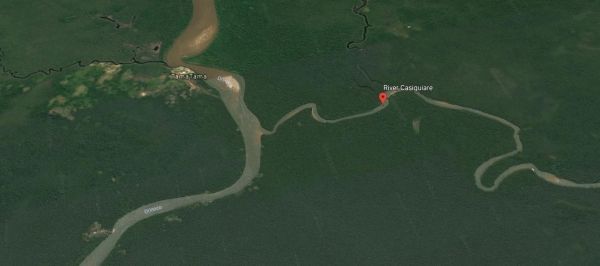The rare conjunction could help researchers understand how river systems evolve and how the Amazon Basin grew to dominate the South American continent.
The 2,140-kilometer (1,330-mile) long Rio Orinoco rises on the western slopes of the Sierra Parima, a 320-kilometer long mountain range on Venezuela’s southeastern border with Brazil dividing the watersheds of the Amazon and the Orinoco. The Rio Casiquiare breaks away from the Rio Orinoco in the remote lowlands below the mountains, diverting about a quarter of the Orinoco’s flow south to the Rio Negro, a major tributary of the Amazon.
The Orinoco, which drains 880,000 square kilometers (340,000 square miles) of Venezuela and Columbia, is the fourth largest river in the world by flow rate at its outlet to the Atlantic Ocean. The Amazon, which drains 6.9 million square kilometers (2.7 million square miles), is the largest river in the world.
Continue reading at American Geophysical Union
Image via American Geophysical Union, Google Earth


